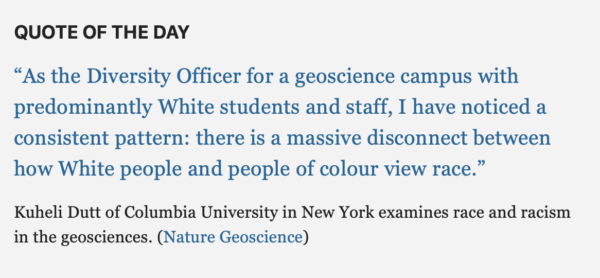• Impeachment seems not to be impressing the stock market very much. The Dow is up around 80 – 100 points, again reaching new record territory.
• Speaking of which, if the House Democrats don’t transmit their articles of impeachment to the Senate, or delay it for weeks (as is being reported today), it is going to make the whole thing appear to be even more a partisan political stunt than it already is. Which won’t help the Democrats’ cause with voters. Do they really want to make it this obvious that the whole thing was done to placate their insane leftist base?
• The economic obsessions of the left are on full display in this Brookings Institution roundup of expert opinion about what the biggest economic story of the last decade is. Especially this entry, from Aaron Klein:
Income inequality’s continued growth in the post financial crises American economy is the most significant economic development of the 2010s.
At this point, you’re expecting the usual Krugmanesque/Lizzie Warren attack on tax cuts for the rich accompanied by a Woody Guthriesque folksong hootenanny about the top 1%. But no:
Not as well appreciated is the growing role America’s payment system has played as a silent, reverse Robin Hood. What I mean is: The payment system has transferred hundreds of billions of dollars over this decade from the poor to the rich. How? From the explosion of tax free credit card rewards available only to the well healed, to the incredible costs of a slow payment system born by those working paycheck to paycheck in overdraft fees, to the rise of payday loans.
Seriously, payment systems? Tax free credit card rewards? Who knew that so many people in the villainous 1% got there with frequent flyer miles and Discover card cash rebates. (Also no appreciation of how these reward programs for more credit-worthy borrowers act to cross-subsidize credit for less credit worthy individuals.) Payday lending is a more complicated problem. If banned or regulated too tightly, watch for mob-style loan-sharking to make a big comeback in poor neighborhoods. The interest rates and late payment penalties of those bankers are, um, rather more severe than your corner payday lender.
• Competing news items from the world of science, first from Nature magazine:

Gee, I wonder why this might be?
Meanwhile, the Washington Post reports this:

A new study adds to a growing body of research that suggests subtle differences in how women describe their discoveries may affect their career trajectories. Male authors were more likely to sprinkle words like “novel,” “unique” and “excellent” into the abstracts that summarize their scientific papers, compared to female authors. Such positively framed findings were more likely to be cited by peers later on, a key measure of the influence of a person’s research, according to the study published in the British Medical Journal. . .
An earlier study of economists, “Publishing While Female,” found that women faced higher editorial standards: “Their manuscripts are subject to greater scrutiny, spend longer under review and women, in turn, respond by conforming to those standards,” wrote Erin Hengel, an economist at the University of Liverpool.
“The cost to women of publishing a paper is much higher than it is for men: Female authors spend three to six months longer under review,” Hengel reported.
To borrow from Glenn Reynolds, why are academic science departments such hotbeds of sexism?
Chaser—perhaps a clue can be found here:
Jeffrey Epstein, the academy and questions about male dominance in science
Convicted sex offender Jeffrey Epstein hobnobbed with some of the world’s leading scientists and thinkers, flying them on his private jet to a TED conference, socializing at exclusive soirees and spawning a web of financial relationships that have roiled two of the world’s most elite universities. . .
The upheaval has intensified as scholars debate publicly and among themselves whether gender biases and inequities in power within the academic culture may have helped protect and enable Epstein. . . The Epstein scandal is a reminder that despite progress, some circles may have been more accessible to a known criminal than to many women.
Of course, Epstein might have been able to have shed some light on all this if he hadn’t hung himself.
Notice: All comments are subject to moderation. Our comments are intended to be a forum for civil discourse bearing on the subject under discussion. Commenters who stray beyond the bounds of civility or employ what we deem gratuitous vulgarity in a comment — including, but not limited to, “s***,” “f***,” “a*******,” or one of their many variants — will be banned without further notice in the sole discretion of the site moderator.